
MECHANICAL ENGINEERING TEACHING LABORATORIES
Freshman Design Studio
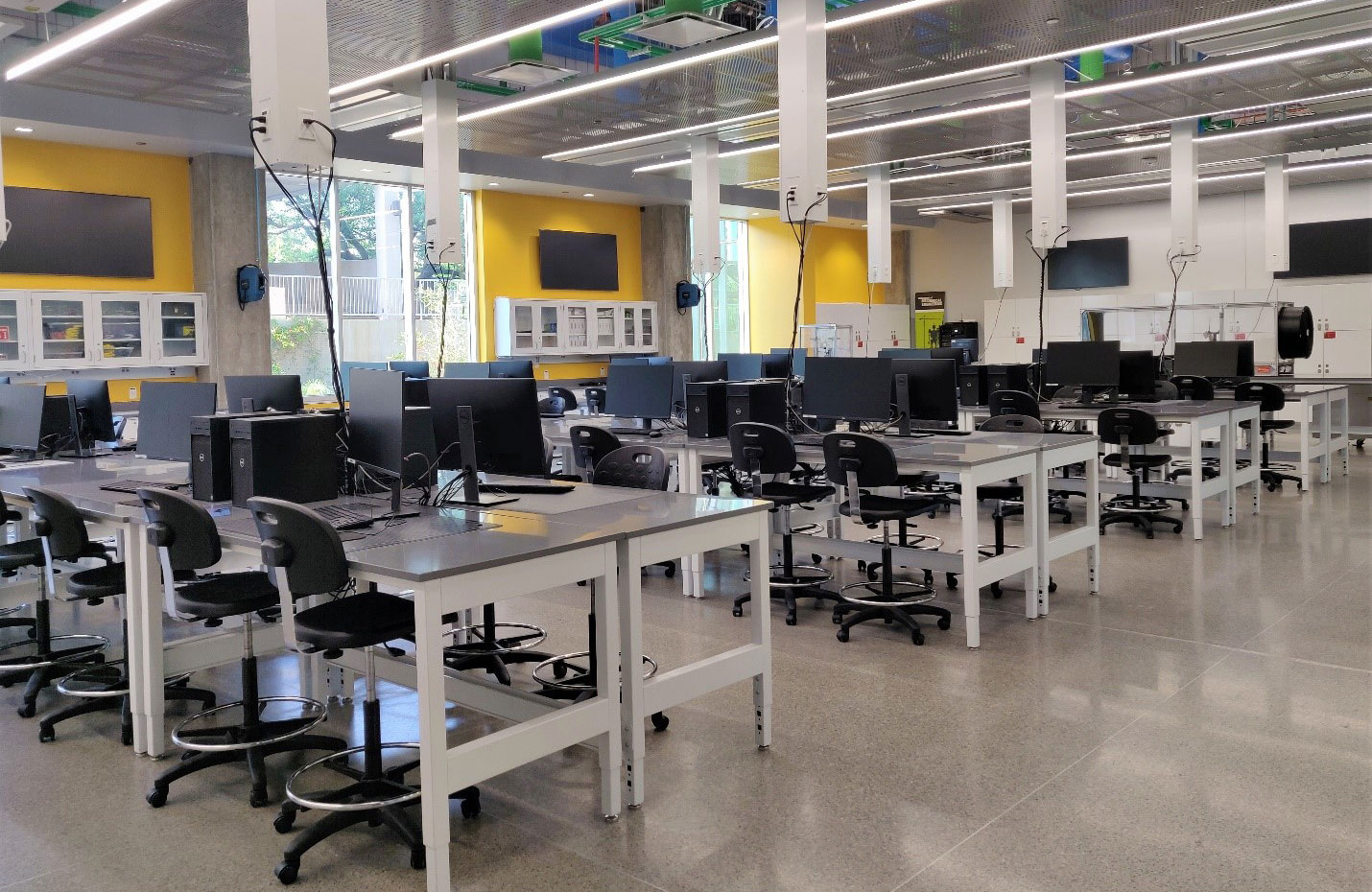
MECH 1100 and 1208, Introduction to Mechanical Engineering I and II, respectively, are taught in the Freshman Studio. Students are introduced to a broad range of topics including wind turbine power generation, geared mechanism simulation and design, force testing of structures, and thermal energy simulation and analysis. During each class, students work on team-based design projects that have real-world applications. Competition-style activities are also held in this lab to motivate and encourage creativity. This lab is equipped with high-end Dell PC workstations with extensive graphics capabilities, students have the opportunity to explore popular computer-aided design software including Creo Parametric, SolidWorks, AutoCAD, CATIA, ANSYS, Abacus and more. The Freshman Studio also has tool boxes, soldering and sanding equipment, as well as data acquisition equipment to conduct experiments.
Equipment List
- Dell Precision 3630
- General Description: The computers at Freshman Studio are capable of running (insert available programs)
Manufacturing Laboratory
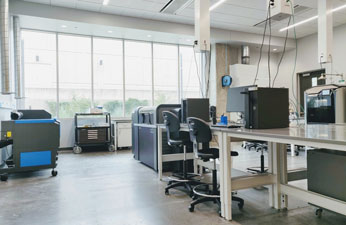
Brand new manufacturing lab includes several professional-grade 3D printers and laser cutter/engravers. The Fused Deposition Modeling (FDM) 3D printers can make parts with a layer size of 0.005” with ABS material family or 0.010” with TPU and PLA materials and can create multi-material gradient prints. The stereolithography-based 3D printer can make parts with a layer size of 16 micro implementing photo-resin materials. The laser cutter/engravers allow students to work with wood, paper-based materials, and plastics, Students from freshman, CAD, K&D, and manufacturing classes can take advantage of the equipment in this lab to implement their design ideas and test the mechanical properties and functionality of different design concepts. This lab is adjacent to the Freshman Studio allowing students from MECH 1100 and MECH 1208 to have easy access to the laser cutters during class time.
Equipment List
- MakerBot Printer Replicator
- The 5th generation 3D printer converts 3D design files and prints utilizing MakerBot PLA Filament.
- Stratasys F370 Series 3D Printer
- The 3D printer utilizes servo/belt gantry dynamics that features multiple model material capability.
- Connex Objet350 Polyjet Printer
- A versatile Stratasys 3D printer containing digital materials and coating applications. The printer also allows multiple simultaneous prints with combination materials.
- Laser Cutter
- The laser cutter features precise cutting for materials up to [insert max dimensions of canvas]
- Support Cleaning Apparatus
- The cleaning apparatus is mainly used for cleaning support off fresh Stratasys F370 3D prints.
- BOFA Fume Extractor
- The fume extractor safely removes any harmful fumes the Polyjet printer produces during a print.
- Dell Precision 5810
- The computers in manufacturing lab is used primarily for preparing and sending 3D files to either the Polyjet or a F370 Series printer.
Fluid Mechanics Laboratory
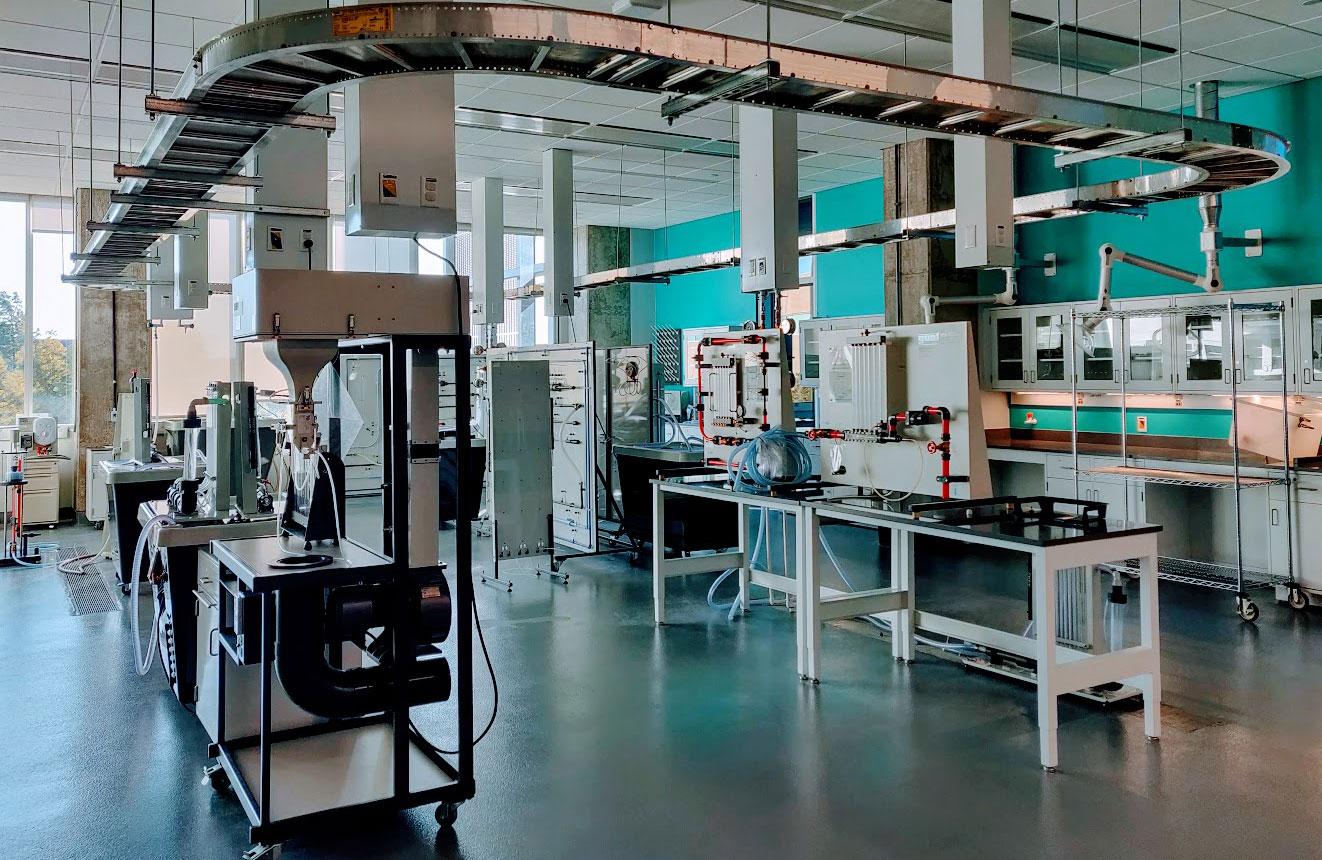
MECH 3115, Fluid Mechanics Laboratory, is taught in the Fluids Lab. Students perform experiments focusing on fluid mechanics concepts including buoyancy, pressure drop, lift & drag, laminar flow and turbulent fluid flow. The lab also offers many unique devices that demonstrate fluid mechanic topics ranging from fluid statics, Bernoulli’s principle, Navier-Stokes theorem, circulation, drag, conservation of mass, energy, and momentum. At the end of each semester, the students design, build and test of their own concepts.
Equipment List
The lab offers many unique item equipment pieces that demonstrates fluid mechanic topics. The topics range from fluid statics, Bernoulli’s principle, Navier-Stokes theorem, circulation, drag, and conservation of mass, energy, and momentum.
Heat Transfer Laboratory
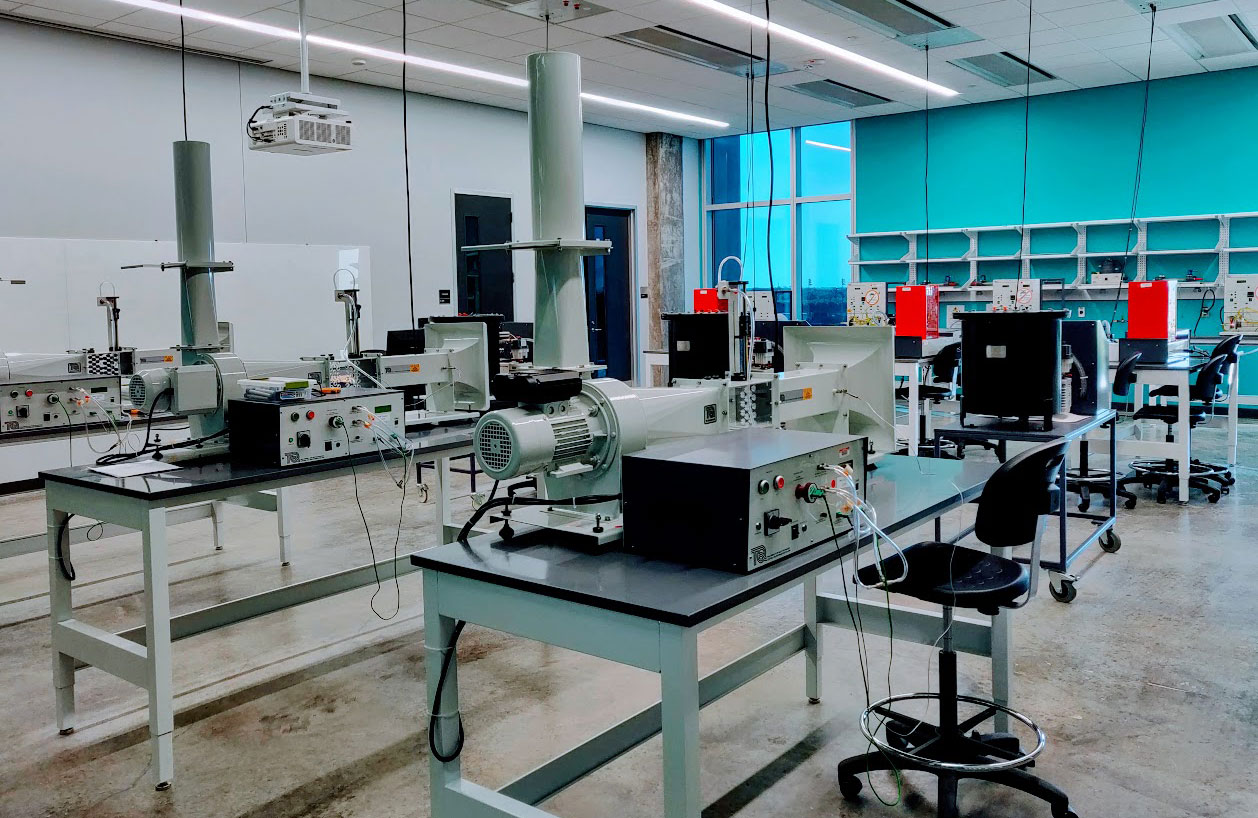
MECH3120, Heat Transfer Laboratory taught in this lab. It gives students hands-on experience with various thermal systems. Typical heat transferring methods and design structures including conductivity, natural and forced convection, and radiation heat transfer at various environmental conditions are explored in-depth in this lab. It can help students to understand heat transfer strategy and pick most efficient and practical method when facing real world challenges.
Equipment List
- TQ heat exchanger service module
- Provides hot and cold water to heat exchangers that can then measure their performance.
- Heat conduction in materials
- A device that can conduct heat in various materials
- Cross Flow Heat Exchanger
- Allows data collection of heat transfer rates by forced convections.
- Natural Convection and Radiation Apparatus
- Allows study of heat transfer at different pressures and vacuum settings. This allows users to differentiate between free convection and radiation.
Mechanics of Materials Laboratory
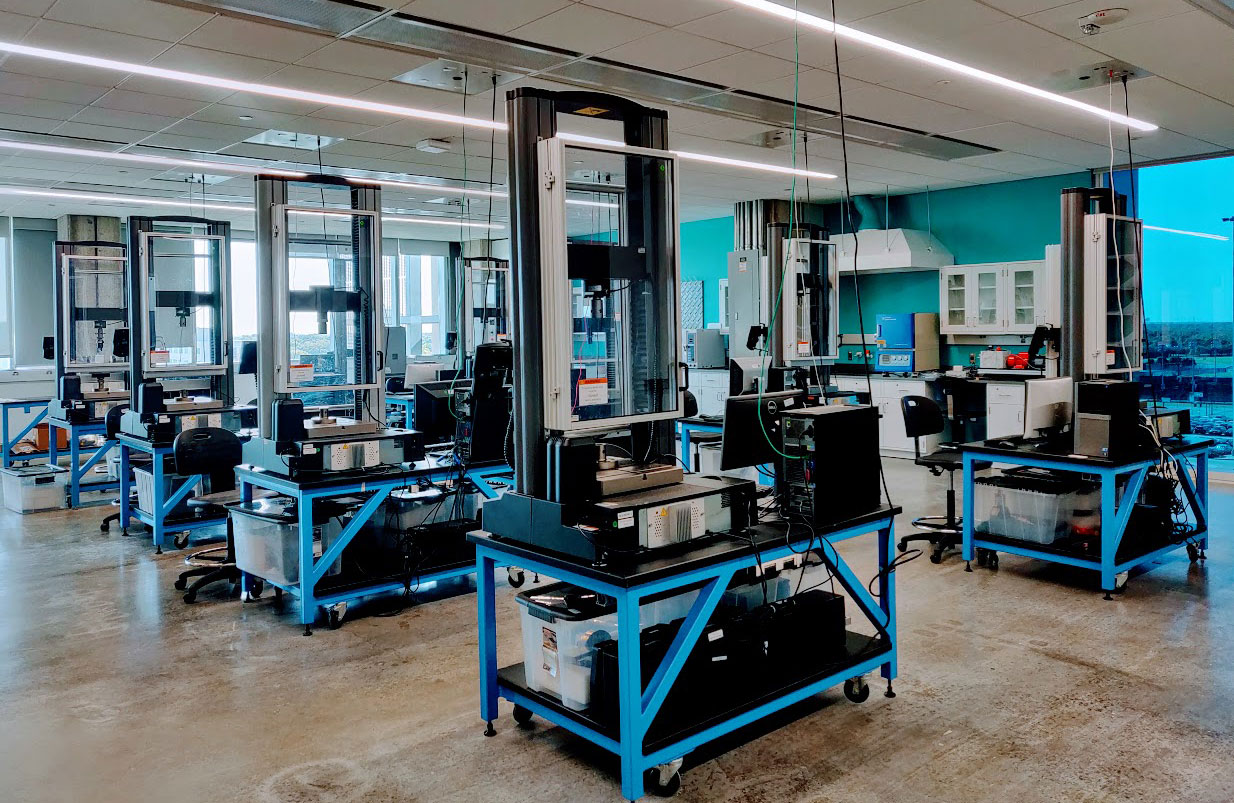
MECH 2120, Mechanics of Material Laboratory, is taught in this laboratory. Students learn how to operate materials testing systems to conduct tension, compression, impact, and bending fatigue experiments, and also use photo elasticity, strain gages, and digital image correlation for stress and strain measurements. Various material properties including stress-strain relationships, Young’s modulus, yield strength, flexural modulus, flexural strength, fracture toughness, specific energy absorption, hardness, and impact strength can be determined. A temperature chamber allows experiments from cryogenic temperatures to a high temperature. An advanced graduate course, Experimental Mechanics, also utilizes this laboratory.
Equipment List
- Fatigue Test Machines
- The machine tests material fatigue from cracks by producing a fluctuating load on the specimen.
- System for Data Acquisition
- Electronically measures impact work from impact test on specimens.
- Instron Machines
- Allows tensile, compression, fatigue, and impact testing on specimens.
- Dell Computers
- The Dell computers are loaded with BlueHill3 software that allow electronic data collection of Instron machine testing.
- Muffle Furnace
- A lab orientated high temperature furnace that hosts a 36”x36”x36” chamber if space.
- Hi-Temperature Vacuum Oven
- A product used for desiccation, vacuum embedding, plating, and elevated temperature aging tests.
Materials Laboratory
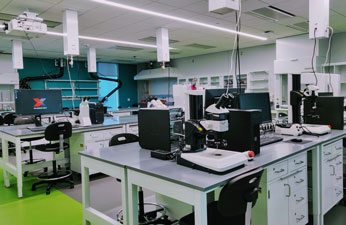
Materials processing and characterization equipment is equipped in this lab, which allows encapsulation of material samples in an epoxy or other matrix, and sample cutting/mounting and polishing. Hardness and impact properties of materials can be characterized by Charpy impact testers. Strain gauges can be prepared in this lab to measure surface deformations on a material specimen. Microstructures can be overserved through high-resolution Leica microscopes including stereo-microscopes at various resolutions.
Control Systems Laboratory
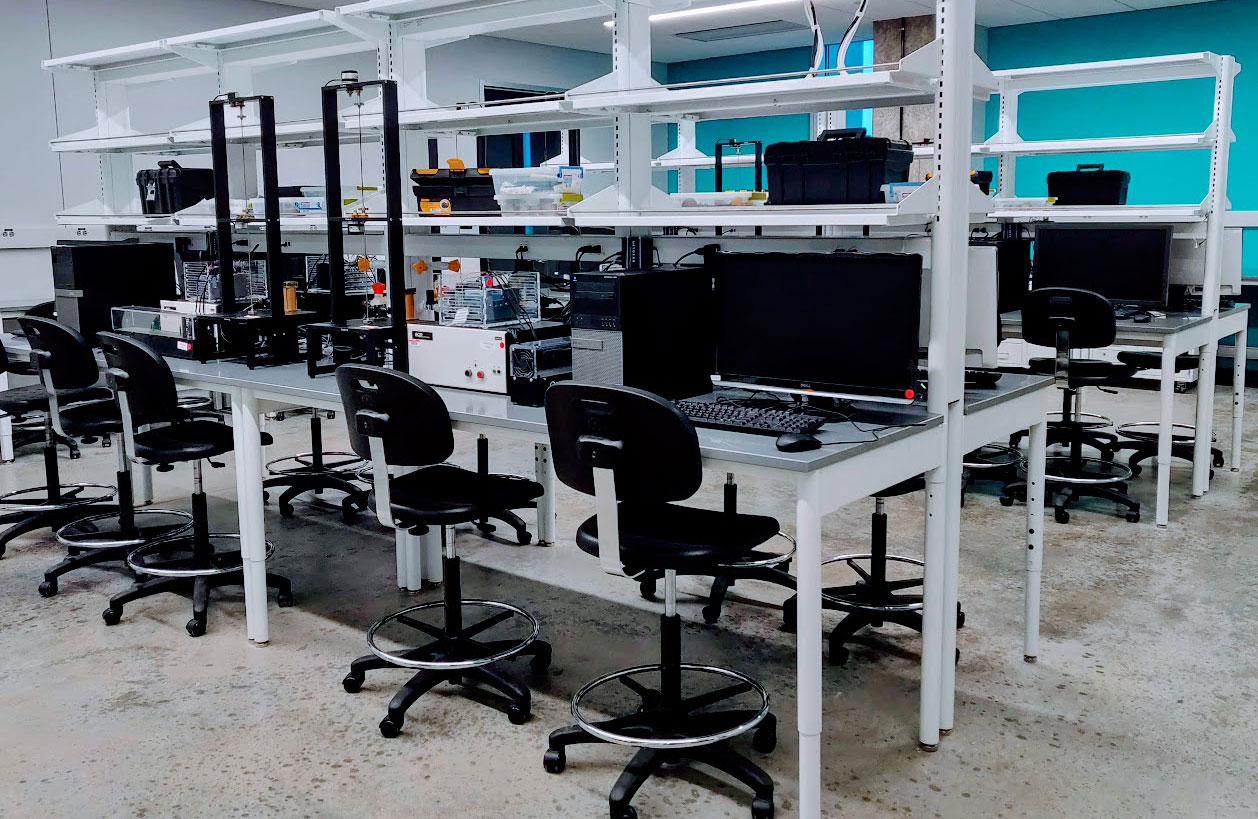
MECH 4110, Systems and Controls Laboratory, is taught in this lab. The lab features controlled rotary arms, couple fluid tanks, and modern active suspension systems. Students can practice control system design, implementation, and tuning while observing how different system structures and parameters impact their designs.
Equipment List
- Coupled tanks
- A device consisting of one pump connected to two tanks that can be configured to adjust water flow rates for water leveling.
- VoltPAQ-X1
- An amplifier device built for complex control configuration for research needs.
- Servo motors
- A motor device built for control configuration that is based off real-life mechanical control systems like cameras, cruise control, speed control.
- Torsional Plant
- A device used to study control system fundamentals by manipulating flexible structural control
- Heat Flow Experiment System
- A device that demonstrates control system fundamentals through experiments with dynamics and thermodynamics.
- Active suspension system
- A device that the automotive industry utilizes when designing vertical movements on vehicles.
Computer Aided Design (CAD) Laboratory
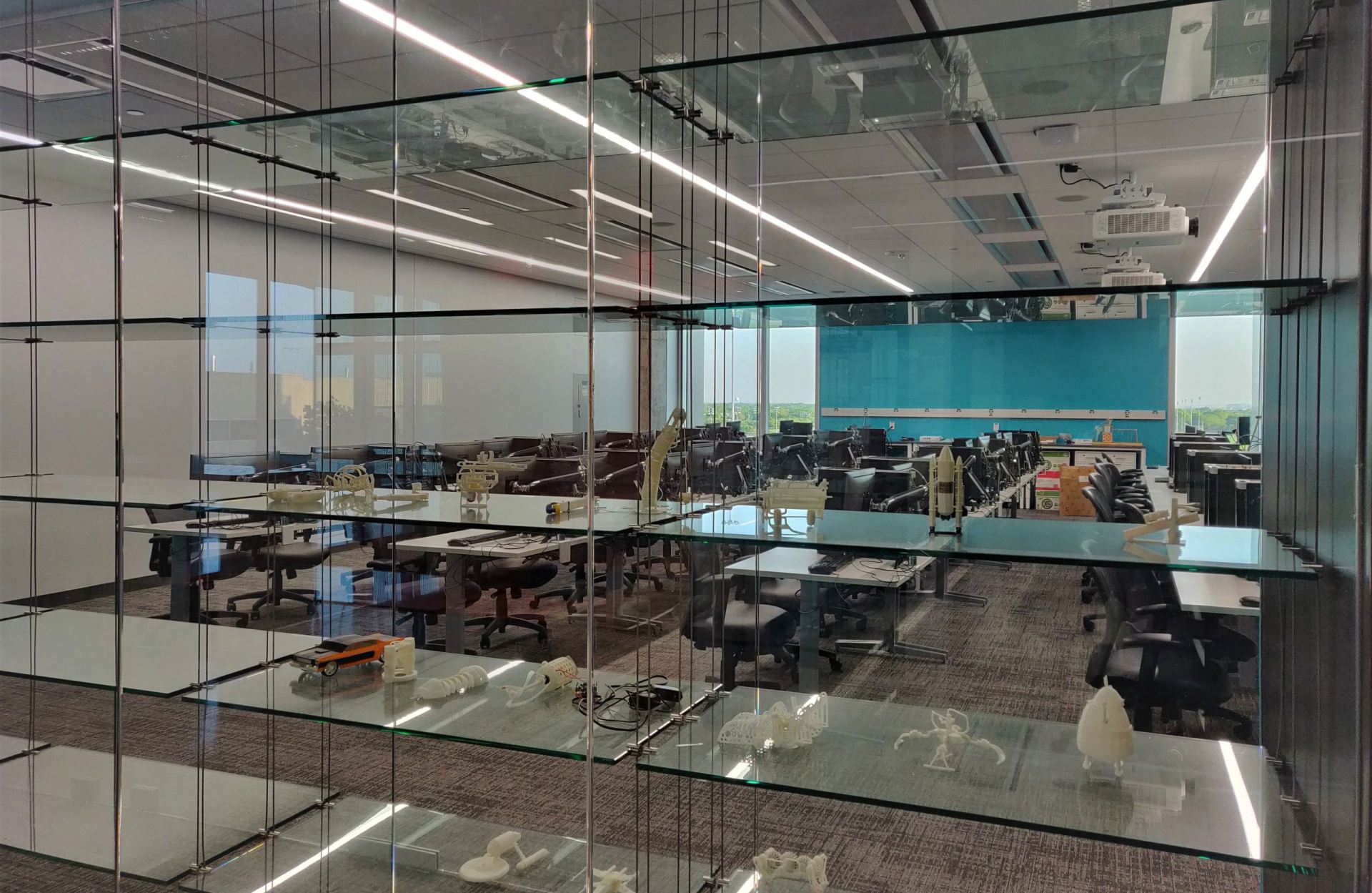
The CAD Laboratory supports several classes which teach CAD and analysis concepts. The lab is equipped with high-performance workstations with graphic intensive capability. Various design software packages are available including Catia, SolidWorks, AutoCAD, PTC Creo, CATIA, ANSYS, FLUENT, ABAQUS, TecPlot, MATLAB, and many more.
Equipment List
- Dell Precision
- The computers are loaded with [insert available programs]. They are primarily used by students for 3D modeling and running 3D simulations.
Mechatronics Laboratory
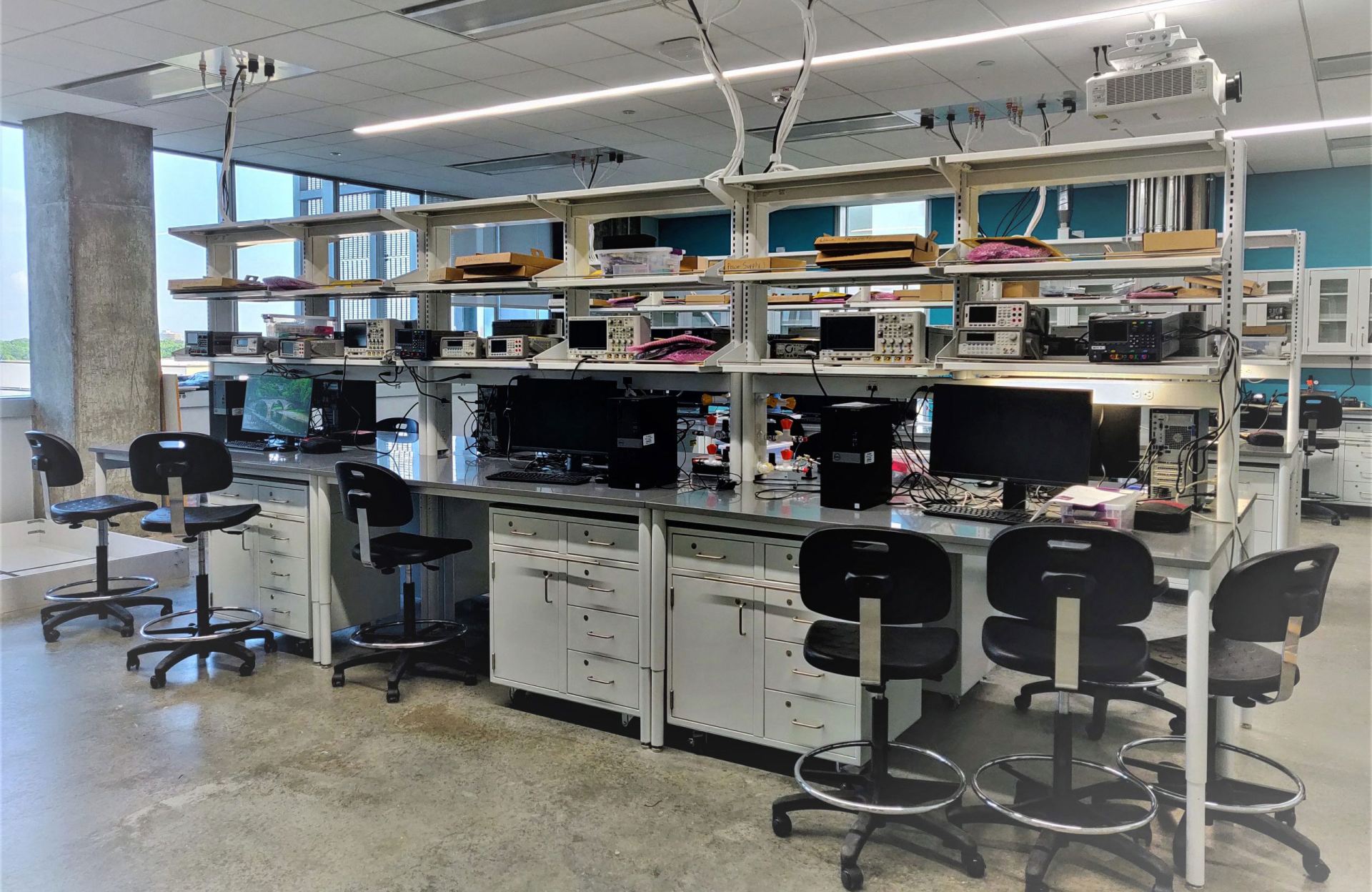
Mechanical engineers are increasingly working on integrated systems that involve electrical and software in addition to traditional mechanical components. Our students are required to take introductory programming and electronic circuits classes to prepare them for their careers on multi-disciplined engineering teams. Equipped with professional grade bench top electronics equipment and programming equipment, students have the opportunity to design, build, and test modern mechatronics/robotics systems with 3D printing, analog and digital circuits and programing skills integrated in this lab.
Equipment List
- InfiniiVision Oscilloscope
- Graphically displays signals as a function of time. The display screen and adjusting knobs allows for changing input voltage and display settings.
- Digital Multimeter
- A device capable of measuring voltage, current, and resistance and displaying results on screen.
- Waveform Generator
- Capable of generating output signals for creating sine waves. It is also capable generating complex, arbitrary waveforms.
- DC Power Supply
- A device capable of producing DC voltage as a means for power supply.
- Optiplex Dell Computer
- Computers in mechatronics mainly used for student use for in-class labs.
UTDesign Studio
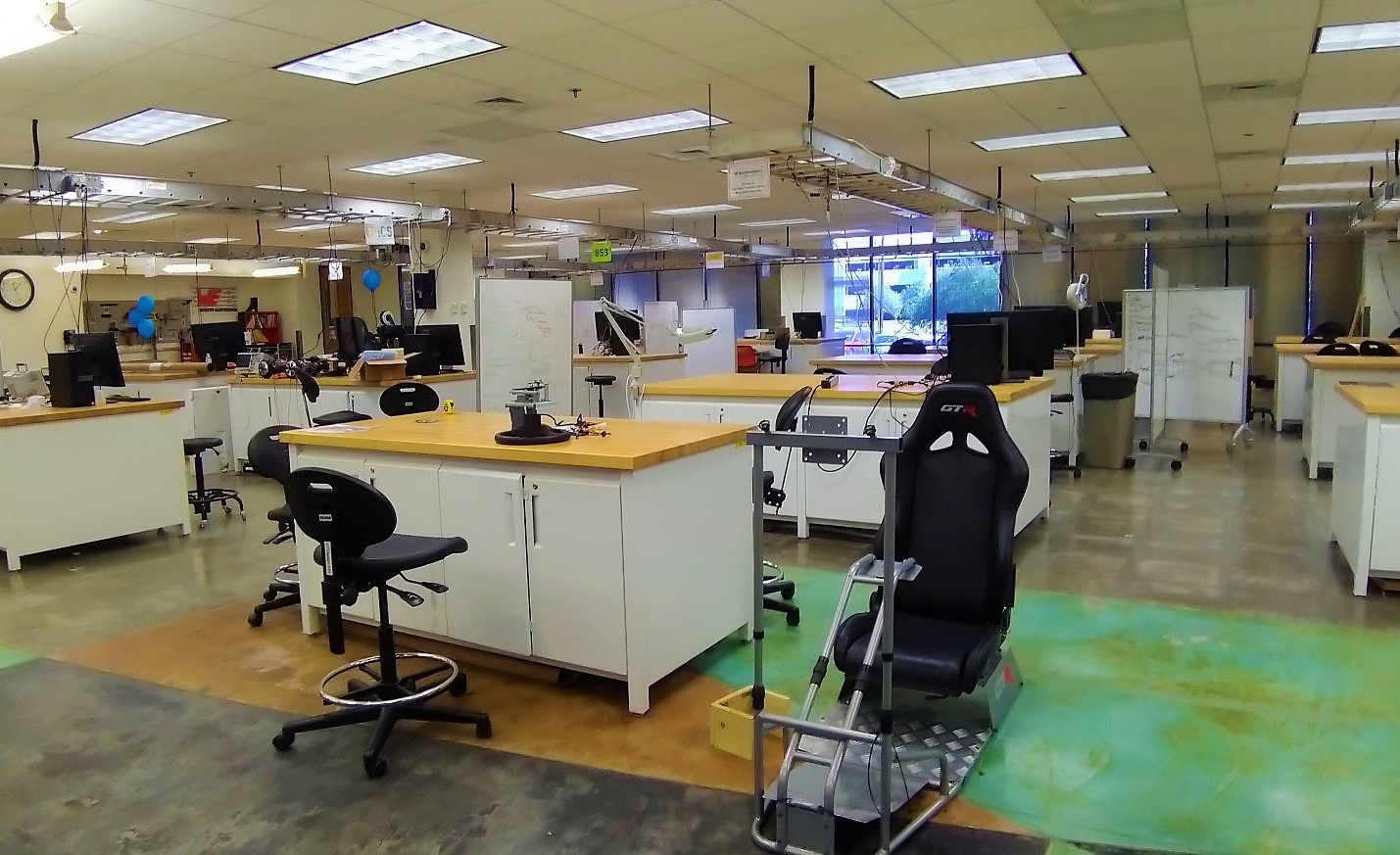
The Mechanical Engineering curriculum culminates in a yearlong senior capstone course. Small teams of students complete a real-world project and apply and hone the engineering design and problem-solving skills they have learned throughout the rest of their coursework. Some of the finished project including a custom wind tunnel and tensile testing machine are actually bring back to teaching labs in service. The UT Design Studio provides workspace and fabrication.




